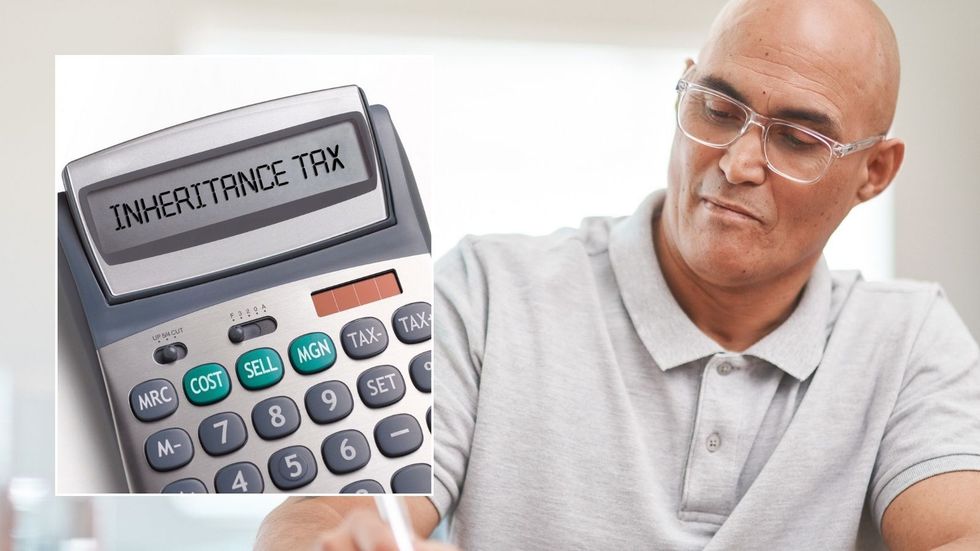Chancellor Rachel Reeves announced last month that defined contribution pension pots will be included in inheritance tax (IHT) calculations from April 2027. The change means an extra 1.5 per cent of UK deaths will become liable for inheritance tax, affecting 10,500 estates with inheritable pension wealth in 2027-28.
A further 38,500 estates will face an average of £34,000 in additional inheritance tax due to pension assets being included in estate valuations. In response to this tax raid, analysts are outlining six ways Britons can reduced their liability for the levy.
Gary Smith, a financial planning partner at Evelyn Partners, warns that some pots could face "double-taxation" if the holder dies at 75 or older, as beneficiaries may pay income tax on withdrawals from pensions already subject to IHT.
"More families will be drawn into the web of inheritance tax from 2027, and some of those will need to start planning now if they want to mitigate the effects," says Smith.
One key strategy to address the new inheritance tax rules is increased lifetime gifting and spending of pension funds, according to experts.
"One possible reaction to suddenly finding that a whole chunk of money that was previously immune to IHT will now be added to the estate is to start giving it away during lifetime or spending it," says Smith.
Do you have a money story you’d like to share? Get in touch by emailing money@gbnews.uk.
An inheritance tax raid could hit pensions within a few times
GETTY
Tax-efficient gifting options include using the 25 per cent tax-free lump sum or making regular withdrawals under the "normal expenditure from income" rule. Marriage could provide another solution for older couples, as wealth left to spouses is exempt from inheritance tax.
Smith suggests that many older couples in long-term relationships may decide to marry specifically to address this tax issue. "Anyone who is married should check their pension death benefit nomination," he advises, recommending that pensions be paid entirely to spouses rather than split among family members.
A third strategy involves carefully managing pension funds around age 75, when the risk of double taxation becomes particularly acute. "Under current rules if the pension holder dies at or after age 75 then the beneficiary must pay income tax at their marginal rate as they access funds from it," explains Smith.
This could result in beneficiaries receiving just 33p in the pound if they're additional rate taxpayers. Annuities are emerging as a fourth option, having gained popularity since interest rates began rising in early 2022.
"The IHT rule change might make the guaranteed income of annuities become more attractive to more retirees," Smith notes. However, he cautions that adding death benefits to annuities can significantly reduce income rates.
Age 75 may become a crucial decision point, with many choosing to convert remaining pension pots into annuities at this stage. A fifth strategy involves diverting funds away from pension savings, particularly for wealthier individuals who have sufficient retirement provisions.
Smith suggests that some savers may cease pension contributions entirely due to the new inheritance tax rules. The £268,275 cap on pension tax-free cash means many will remain mindful of the old Lifetime Allowance of £1,073,100.
Alternative options include paying down mortgages, seeking more inheritance tax-efficient assets, or making charitable donations. "They might decide to divert the money that was going towards their own pension contributions into lifetime gifts to family, such as into Junior ISAs or a pension for adult or child relatives," Smith explains.

This approach could be relevant for those who previously maximised pension contributions primarily to pass wealth to their families. The final strategy involves taking out insurance to cover inheritance tax liabilities, particularly after pensions become part of taxable estates.
"For those who are looking at substantial IHT liabilities after pensions are included in estates, taking out whole of life cover can be an efficient way of insuring your inheritance tax liability," Smith advises.
Policies should be written into trust to ensure payouts don't form part of the taxable estate. For married couples, Smith recommends a "joint life, second death" policy, which pays out only after both partners have died.
This method can also help executors by providing readily available funds to settle inheritance tax before probate is granted. Those planning to increase pension withdrawals could use this money to fund such insurance policies, though Smith notes these can be expensive.

 By GB News (Politics) | Created at 2024-11-18 10:08:59 | Updated at 2024-11-18 12:22:22
2 hours ago
By GB News (Politics) | Created at 2024-11-18 10:08:59 | Updated at 2024-11-18 12:22:22
2 hours ago









